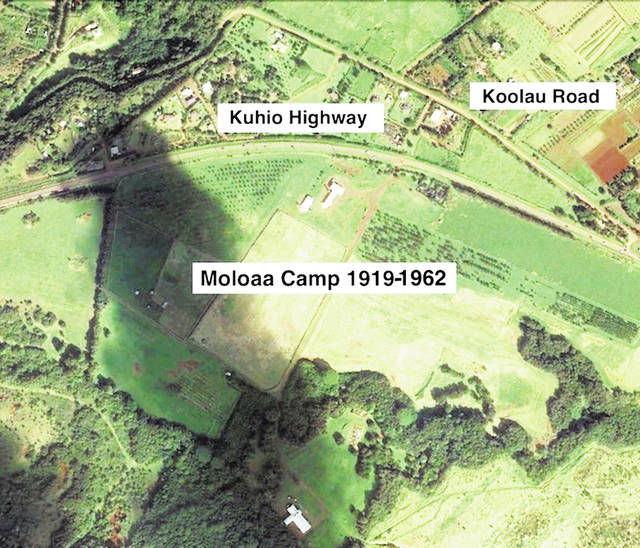Hawaiian Canneries Co. — with its cannery located at Kapaa, Kauai, where Pono Kai Resort now stands and its fields scattered from Hanamaulu to Hanalei — cultivated and processed pineapple from 1913 to 1962. During 1919, the company began erecting
Hawaiian Canneries Co. — with its cannery located at Kapaa, Kauai, where Pono Kai Resort now stands and its fields scattered from Hanamaulu to Hanalei — cultivated and processed pineapple from 1913 to 1962.
During 1919, the company began erecting a housing camp at Moloaa on acreage that had been the site of Scotsman Alexander Lindsay’s dairy during the late 1800s.
The camp’s first houses were built along the contours of gullies, while later houses were laid out in streets with straight roads, and the camp eventually grew to about 50 houses and became the home of the year round field employees and families of Hawaiian Canneries.
Most of the newer houses were constructed of tongue-and-groove lumber, had three bedrooms, a living room, dining room and kitchens equipped with wood-burning stoves.
Family bathhouses contained a furo, modern shower and space for doing laundry.
A diesel generator supplied the camp with electricity beginning in 1937, which was conveyed to houses via wires on poles, four of which were mounted with street lights.
Moloaa Camp’s water supply came from a nearby spring from which water was stored in tanks and piped to houses.
Fire hydrants stood on each street corner, trees shaded the camp, and families cultivated fruits and vegetables and raised chickens.
Community pig pens, a baseball field, a club house, pool hall and general store were also part of Moloaa Camp.
Kapahi resident Caroline Okasako, who grew up in Moloaa Camp and went to Koolau School — which was in existence from 1889 to 1960 and was situated by the old graveyard on Koolau Road — recently remarked that her father was camp boss and the camp’s one and only phone was located in the Okasako house.
Soon after Hawaiian Canneries shut down in 1962, camp residents moved out, a number of their houses were sold and trucked elsewhere, and the rest were demolished.
Now privately owned, the Moloaa Camp site became a cattle ranch beginning in 1966, and Meadow Gold operated a dairy there from 1989 until 2000.


